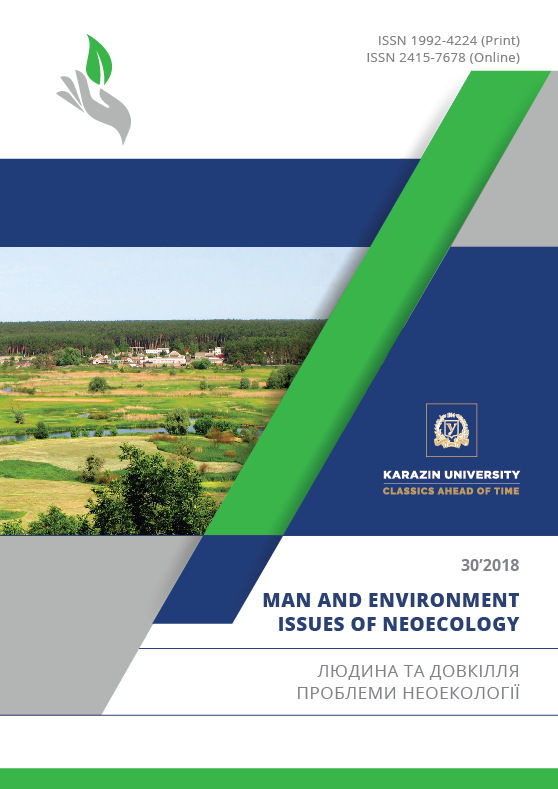Про ґрунтоохоронну інформацію, етику і етичні норми
Анотація
Мета − визначити деякі моральні норми етичної поведінки як основу раціонального використання і охорони ґрунтів. Дбайливе і турботливе відношення до ґрунту, екологічний імператив – внутрішня потреба керівника, землекористувача і вченого. У взаєминах «держава-землекористувач» повинні бути виключені дії, що шкодять ґрунту. Обговорено питання, як допомогти землевласнику використовувати інформацію, спрямовану на збереження ґрунтового покриву, як досягти прибутковості сільськогосподарського підприємства, не порушивши якість ґрунтового покриву, які дії повинна здійснити держава, щоб ґрунтоохоронні рекомендації вчених знайшли дорогу в практику, що важливіше продуктивна чи екологічна функції ґрунтового покриву. Примусово-заохочувальний принцип ставлення держави до землекористувача і субсидування сільськогосподарської діяльності повинні стати головними у ґрунтоохоронній стратегії держави.
Завантаження
Посилання
Pro zatverdzhennya polozhennya pro derzhavnu sluzhbu intelektual`noyi vlasnosti Ukrayiny. (2014). [On Approval of the Provision on the State Service of Intellectual Property of Ukraine]. Resolution of the Cabinet of Ministers, 668, edited 19.11.2014 [in Ukrainian].
Gentile, A.R. (2001). Proposal for an European soil monitoring and assessment framework. European Envi-ronmental Agency. Copengagen, 58 [in English].
Barth, N., Brandtner, W., Cordsen, F., Dam, T., Emmerich, K.H., Feldhaus, D., Kleefisch, B., Schilling, B. Utermann, J. (2000). Boden-Dauerbeobachtung: Einrichtung und Betrieb von Boden-Dauerbeobachtungsflächen Rosenkranz/Einsele/Harress (Hrsg.). BoS 32. Lfg. XI/2000 Kap. 9152 [in Nimetsky].
Balyuk, S.A., Medvedyev, V. V. (2012). Strategiya zbalansovanogo vy`kory`stannya, vidtvorennya i upravlinnya g`runtovy`my` resursamy` Ukrayiny`[ Strategy of balanced use, reproduction and management of Ukrainian soil resources]. Kyiv : Agrarian Science, 240 [in Ukrainian].
During, R.-A., Michels, A. (2006). Conservation Agriculture, Оrganic Farming and GM crops in Germany. Main focus: Western Germany. Report D 1.1. A 5. KASSA Project. CIRAD. France, 1-45 [in English].
Lal, R. (2007). Constraints to adopting no-till farming in developing countries. Soil and Tillage Research, 94, 1-3 [in English].
Sokolovskij, A.N. (1956). Pochvovedenie [Soil science]. Moskow. Sel'hozgiz, 335 [in Russian].
Dokuchaev, V.V. (1936). Nashi stepi prezhde i teper'.[ Our steppe before and now. Moskow-Leningrad: OGIZ. Selkhozgiz, 116 [in Russian].
Lahmar, R., Tourdonner, S.de, Barz, P., During, R.-A., Frielinghaus, M., Kolli, R., Kubat, J., Medvedev, V., Netland, J., Picard, D. (2006). Prospect for Conservation Agriculture in Northern and Eastern European Countries, Lessons of Kassa. Bibliotheca Fragmenta Agronomica, 11, 77-88 [in English].
Derpsh, R., Moria, K. (2005). Vliyanie obrabotki pochv na sel'skohozyajstvennuyu kul'turu i ehkosistemu. [The Impact of Soil Treatment on Crops and Ecosystems]. Proceding of 2nd Conference «Self-restoring effi-cient farming». Dnepropetrovsk, 42-61 [in Russian].
Barz, P., Edwards, T., Campbell, T. I., Hood, D. W. (2006). Alternative agricultural systems in the United Kingdom. Report D 1.1 A8. KASSA Project. CIRAD, France, 1-95 [in English].
Автори, які публікуються у цьому журналі, погоджуються з наступними умовами:
- Автори залишають за собою право на авторство своєї роботи та передають журналу право першої публікації цієї роботи на умовах ліцензії Creative Commons Attribution License 4.0 International (CC BY 4.0), котра дозволяє іншим особам вільно розповсюджувати опубліковану роботу з обов'язковим посиланням на авторів оригінальної роботи та першу публікацію роботи у цьому журналі.
- Автори мають право укладати самостійні додаткові угоди щодо неексклюзивного розповсюдження роботи у тому вигляді, в якому вона була опублікована цим журналом (наприклад, розміщувати роботу в електронному сховищі установи або публікувати у складі монографії), за умови збереження посилання на першу публікацію роботи у цьому журналі.
- Політика журналу дозволяє і заохочує розміщення авторами в мережі Інтернет (наприклад, у сховищах установ або на особистих веб-сайтах) рукопису роботи, як до подання цього рукопису до редакції, так і під час його редакційного опрацювання, оскільки це сприяє виникненню продуктивної наукової дискусії та позитивно позначається на оперативності та динаміці цитування опублікованої роботи (див. The Effect of Open Access).





